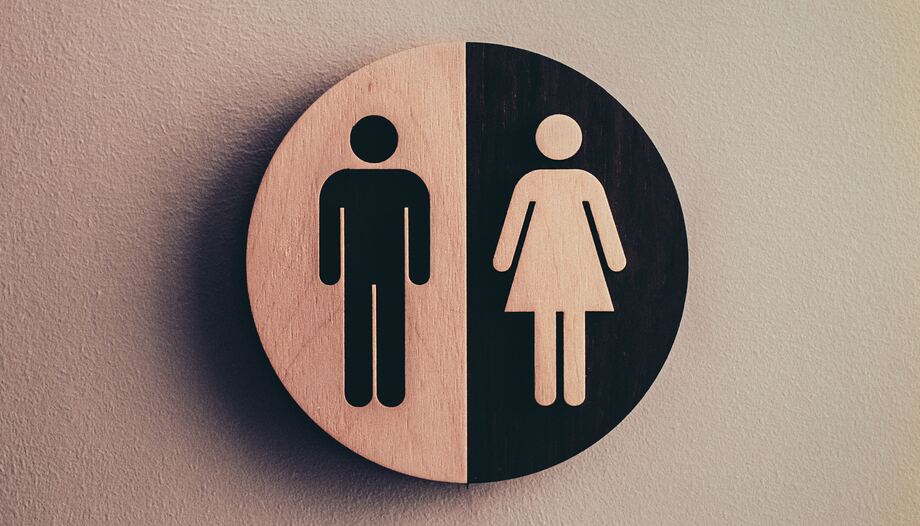Pope Francis described gender ideology as "one of the most dangerous ideological colonizations in the world". Aware of the strong impact that this current of thought has on today's society and of the doubts that arise in relation to it, the Archbishop of San Francisco and the Bishop of Oakland held an joint letter to "provide clarity" regarding Catholic doctrine on this issue.
Archbishop Salvatore J. Cordileone and Msgr. Michael C. Barber note with concern the dangers of this prevailing ideology. "Gender ideology," they say at the outset, "denies certain fundamental aspects of human existence." It is a system of ideas that "is radically opposed, in many important respects, to a sound understanding of the human nature". Even further, it is a current that "opposes reason, science and a Christian vision of the human person".
Dualism versus unity
The pastoral letter enters fully into the debate on dualism that opens up when dealing with gender ideology. This prevailing current rejects "the essential unity of body and soul in the human person." However, "throughout its history, the Catholic Church has opposed notions of dualism that posit body and soul as separate and unintegrated entities."
While gender ideology often speaks of the drama of being born "in the wrong body," the Church vehemently denies this claim. "From the beginning of his or her existence, the human person has a body sexually differentiated as male or female. Being male or female 'is a good reality willed by God' (Catechism of the Catholic Church, n. 369). Consequently, one can never say that one is in the 'wrong' body".
Since God created human beings in his image and likeness, to eliminate sexual difference is to "diminish" this identity of the person. In his pastoral letter, both the archbishop and the bishop consider that to do this "would be an offense to human dignity and a social injustice." A fault that is even more aggravated if one takes into account that, by eliminating sexual difference, one also attacks the complementarity between male and female, an element that is at the root of the family.
Truth and charity, true compassion
Now, this reality expressed by the bishops must be seen in the context of charity. "The Church is called to do as Jesus did, to accompany the marginalized and the suffering in a spirit of solidarity, while affirming the beauty and truth of God's creation." For this reason, the pastoral letter calls Christians to find a balance between truth and charity. In this regard, they quote verbatim from the encyclical "Caritas in veritate". In this document, Benedict XVI warned that "truth is the light that gives meaning and value to charity. Without truth, charity falls into mere sentimentality. Love becomes an empty shell".
Cordileone and Barber emphasize this idea, stressing that "compassion that does not include both truth and charity is misguided compassion." They specify that "support for those experiencing gender dysphoria must be characterized by an active concern for genuine Christian charity and truth about the human person."
The pastoral letter also directly addresses people experiencing gender dysphoria. The bishops assure them that "God knows us, loves each of us and desires our flourishing." They admit that "our lives, even our own identity, can sometimes seem a mystery to us. They can be a source of confusion, perhaps even anguish and suffering."
Cordileone and Barber state with certainty for all who may doubt it, "that their life is no mystery to God, who has numbered every hair on their heads (Luke 12:7), who created their inmost being and knit them together in their mother's womb (Psalm 139)."
Christ reveals our identity
As the document reminds us, the incarnation of Christ should be a source of joy and hope for all. "By assuming a bodily human nature, Jesus reveals the goodness of our created bodies and the closeness of God to each of us. He is not distant or indifferent to our questions, our challenges or our sufferings."
In becoming man, "Jesus not only reveals God to us, but he reveals to man what man is". Therefore, the person cannot create for himself an identity other than that which God gives him. Our "most fundamental identity is that of beloved children of God".
In the search for identity that we human beings carry out, the desire to know ourselves as God has created us is hidden. However, there is no reason for each person to undertake this task alone. The pastoral letter concludes by affirming that the Church wishes to accompany people on this journey, in the search for identity experienced by those with gender dysphoria, by all Christians who wonder about their own lives and, in short, by every human being.








